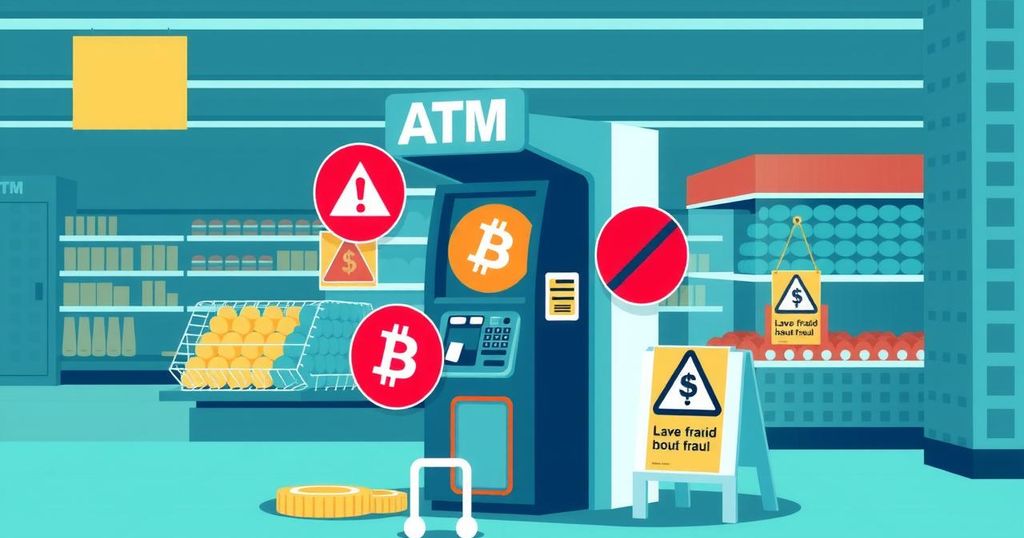AARP Sounds Alarm on Cryptocurrency ATM Scams Amid Bitcoin Surge
The AARP warns of surging scams related to cryptocurrency ATMs, as Bitcoin’s popularity grows. Many users, unaware of risks, are targeted by fraudsters posing as law enforcement, urging them to withdraw cash and convert it to Bitcoin via these machines. Victims must report incidents promptly.
Amid rising interest in cryptocurrency, the AARP has issued a stern warning about scams tied to crypto ATMs. With Bitcoin recently hitting record highs, more people are trying their hand at purchasing cryptocurrencies. However, it seems that alongside this surge in usage, there’s a spike in fraudulent activities exploiting unsuspecting users of these machines.
A recent survey by Pew Research indicates that 63% of Americans feel unsure about the safety of cryptocurrencies, but this doesn’t encompass the full extent of the risks out there. The presence of Bitcoin ATMs has proliferated, appearing in various public locations, including grocery stores and gas stations. Yet, these machines can mask underlying dangers.
Amy Nofziger from the AARP Fraud Watch Network highlighted the ease with which scammers operate, noting that crypto ATMs often resemble standard ATMs or change machines. They can easily fool someone into thinking they’re making a legitimate transaction. Scammers typically impersonate law enforcement officials, urging victims to withdraw cash and convert it into Bitcoin through these machines, effectively making the money untraceable.
Nofziger explained how the process works: once an unsuspecting individual has deposited money, it is converted to Bitcoin instantaneously and transferred to a criminal’s wallet, leaving victims with little recourse. The unfortunate reality, as she shared, is that many people are not familiar with how these ATM transactions function, making them easy targets for deception.
The AARP’s message is clear: if anyone receives a call demanding payment through a crypto ATM or directing someone to deposit cash into one, it is a scam. They urge individuals to remain vigilant. Anyone who falls victim to such scams should report the incident to local law enforcement or file a complaint online through ic3.gov. They may also contact the AARP Fraud Watch Network for further assistance.




Post Comment